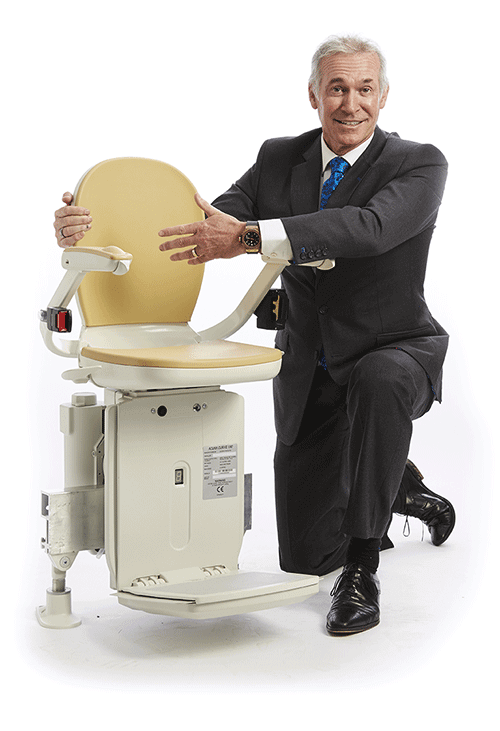Who hasn’t fantasised about kicking back, relaxing, and soaking up the sun on a gorgeous, breezy beach—refreshing cocktail in hand?
Retirement is something that we look forward to from the day that we start working and it dawns on us that rising with the sun, frequent caffeine fixes, and collapsing onto the couch completely exhausted at the end of another long day will be a large part of our lives for the next 50 years.
However, the truth is that retirement isn’t all sunshine and rainbows—Sometimes, with retirement comes complicated and confusing emotions that you never expected you’d experience.
In fact, after retirement, many seniors experience a perceived loss of identity, purpose, and meaning in life without a job, as well as boredom, isolation, and depression from suddenly having all of this free time on their hands that they don’t know how to fill.
However, retirement doesn’t have to feel this way. Retirement may mean that your career has come to an end, but it doesn’t mean that your life has come to an end—In fact, it’s just the beginning of a new era full of freedom, fresh opportunities, exploration, and adventures you’ve yet to experience.
Read on to learn how you can make the most of your golden years, meaningfully passing your precious free time and finding fulfillment and happiness in this exciting, new chapter of your life.
Bored to Death—How Being Bored is Actually Scientifically Dangerous for Seniors
Have you ever heard someone dramatically whine, “I’m bored to death”?
Well, it turns out that this phrase may not be all that dramatic when it comes to a specific demographic—seniors.
In fact, according to a study conducted over several decades, it was revealed that people who experienced high levels of boredom in comparison to those who experienced less day-to-day tedium were three times as likely to die from a stroke or heart attack.
Furthermore, after 25 years of living with high levels of boredom, these participants were also more likely to pass away at a younger age.
This study is just one of the many examples demonstrating the devastating physical health effects that accompany poor mental health.
Life-Transforming Tips for Finding Fun Things to Do with Your Free Time When You’re Bored as a Senior
1. Stay Socially Active—Stay Connected with Friends and Family and Join Social Clubs
Humans are social creatures with an innate need for connection, so when feelings of loneliness, isolation, and boredom consume us, the devastation of not having our needs met can lead to some serious health complications.
In fact, researchers have found that loneliness is just as lethal as smoking 15 cigarettes a day and is even worse for ageing than smoking.
This is why staying social is so important for seniors, not just for the sake of boosting their social status, but for the sake of their overall health and well-being.
Life is short and precious, so make time for the people who matter most. If you have close friends or family members who live near you, get lunch with them or invite them over for a chat every now and then for some quality time together.
Even if your friends or family live far away from you, you can arrange for them to come visit you or you stay connected with them through frequent phone calls, video chats, or text messages.
If you are looking to make new friends, it is much easier to do so when you share a common interest. This is why joining a local club or social group that you are passionate about is the perfect way to meet people who are interested in the same hobbies or conversation topics as you.
Whether you love to dance, knit, learn new languages, read, play chess, or discuss films, there is a diverse range of social groups and clubs that will keep you entertained during your free time.
Finally, another more specialised way to meet people who have a lot in common with you is to look into your local senior centres.
Senior centres are facilities designed for senior citizens that provide a wide range of social, recreational, and cultural activities, as well as promote the health and wellbeing of seniors.
If you are looking to meet people who are around your age or participate in planned activities or events, joining a senior centre is a great way to jumpstart your social circle.
Search for local senior centres to start significantly raising your social status.
Want to learn all of the health benefits that you can expect to experience scientifically just by being a social butterfly? Click here to read more.
2. Keep Your Mind Active—Take Up a New Hobby, Solve Puzzles, and Play Games for Lifelong Learning
Learning is not a one-and-done experience—No matter how old you are, how experienced you are, or how many books you’ve read, there is always something you don’t know out there to learn and exciting, new adventures that you’ve yet to experience awaiting you.
Don’t let the spark of your passion and curiosity dim into darkness. Continue exploring the world and all of its wonders, mystery, and beauty. The possibilities of what you can accomplish and experience in this world and the ways in which you can choose to live your life are truly limitless.
Have you always wanted to learn how to play the piano or to speak French because you’ve always thought the language sounded beautiful and romantic? Do you ever wonder whether you would enjoy yoga classes or what it would be like to explore a foreign country that you’ve never visited? Do you wish that you knew how to bake and assemble a four-layer cake?
Stop wishing and wondering and start doing. Your golden years are the perfect opportunity for you to do all of the things you’ve always wanted to but never had the time for.
Not only does learning or experiencing something new combat boredom but scientifically, it also has been proven to improve your cognitive brain health, advance your problem-solving skills, and sharpen your memory, all of which are especially helpful for seniors who are already prone to experiencing significant cognitive decline as they age.
Other equally fun and mentally stimulating activities that you can do to fill your free time include solving puzzles, playing games, and reading.
To learn more about all the health benefits that you receive from trying or learning something new, click here.
3. Adopt a Furry Friend—Improve Your Overall Health and Well-Being
There’s a reason why fur babies are considered “man’s best friend.”
Studies have shown that owning a pet provides many benefits both mentally and physically can combat loneliness and the negative effects that come with constantly feeling socially isolated.
The reality is that in some countries in the world, as many as one in three older people report feeling lonely, according to the World Health Organisation.
In fact, 12% of Aussies over 65 spend no time with others during their days and a further 5% spend half an hour or less with no contact with others.
Sadly, frequent feelings of loneliness and social isolation can have devastating effects on the mental and physical health of senior citizens such as significantly increased risk for depression, heart disease, other mental health issues, overall poor health, and you guessed it—boredom.
If you are feeling lonely, socially isolated, or just have a love for animals, consider picking a pet to be your next furry best friend.
How can you be bored with your best friend by your side at all times?
Want to learn the many benefits that pets provide you with from the minute they scurry into your life? Click here to see just how many benefits our furry friends provide us with.
Are you unsure of whether you are capable of caring for a pet or which pet would be best for you and your lifestyle?
Click here to learn more about the factors you should consider when making the big decision of owning a pet, other ways you can interact with pets without the responsibility of ownership, and tips for how to go about taking care of a pet as a senior.
4. Stay Physically Active—Get Out of the House, Move Your Body, and Exercise
It is a common misconception that as we continue to grow older, life is supposed to slow down to a snail’s pace where we get a free pass from engaging in any form of exercise, guiltlessly swapping afternoon walks with afternoon naps.
However, the truth is that exercise is even more crucial and beneficial for seniors, a demographic that already struggles with health conditions such as deteriorating muscle mass, lack of balance, increased fatigue, a weaker immune system, and is more susceptible to injuries.
In fact, a lack of exercise not only contributes to boredom, but also exacerbates the conditions and complications associated with ageing, leading to a decline in your physical health, mental health, and overall well-being.
It is recommended that adults from ages 18 to 65, should be doing at least 150 to 300 minutes of moderate-intensity aerobic physical activities or at least 75 to 150 minutes of vigorous-intensity aerobics per week.
For adults over the age of 65, the same recommendations are true, except older adults should also be adding exercise that emphasises functional balance and strength training at moderate or greater intensity, on 3 or more days a week, to enhance functional capacity and to prevent falls.
So, let’s get our bodies moving!
Remember that exercising does not have to be intense or tortuous for you to start seeing results—You don’t have to run, jump, bench heavy weights, or overexert yourself to experience the health benefits of exercise.
There are several options of effective exercise to choose from that are realistic, have minimal impact or stress on your body, enjoyable, and do not cause you to pass out from exhaustion.
Start small—Try to get out of the house more. Run errands. Go get the mail at the end of the driveway. Move around more in your home. Go dancing with your husband or wife. Attend a yoga class with your best friend. Go for a quick, relaxing walk around the lake.
The possibilities are truly endless, and everyone can find a form of exercise that they also enjoy.
Want some more examples of low-impact exercises you can do safely as a senior or someone with limited mobility?
Click here to learn more.
5. Get Involved in Your Community—Volunteer, Host, and Attend Local Events
It’s easy to feel bored or isolated from the rest of the world when you do not know your own neighbours or the events going on in your community.
If you want to start getting more involved in your community and meet new people in your area, one of the best ways to do so is by attending events or volunteering within your community.
Go on the internet and search for the events that are happening in your neighbourhood that you would be interested in attending.
From seeing a local play to lending a helping hand at a soup kitchen, by participating in these events, you will fill up your empty schedule while simultaneously meeting more people in your community.
By getting to know those around you and helping those in need, you will feel a greater sense of belonging and purpose in your life.

